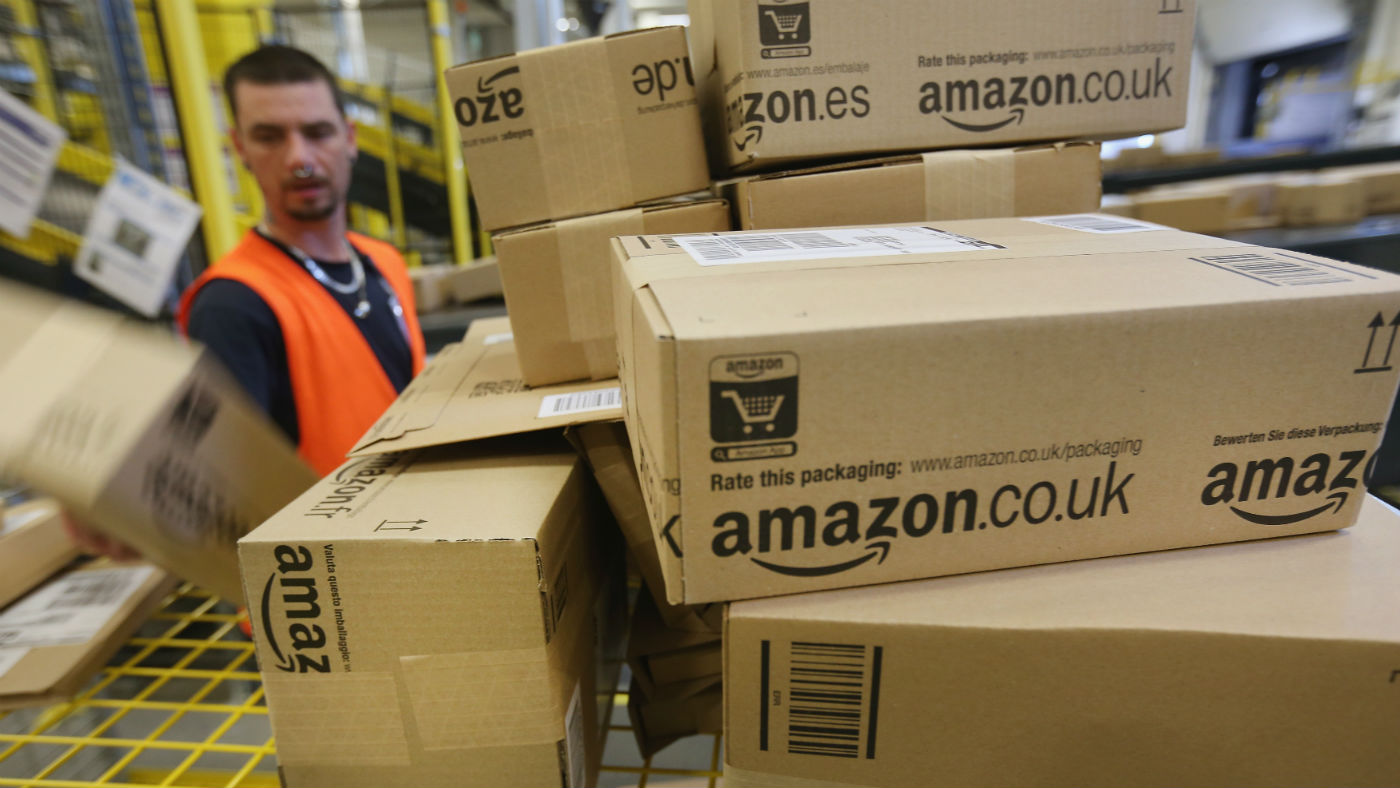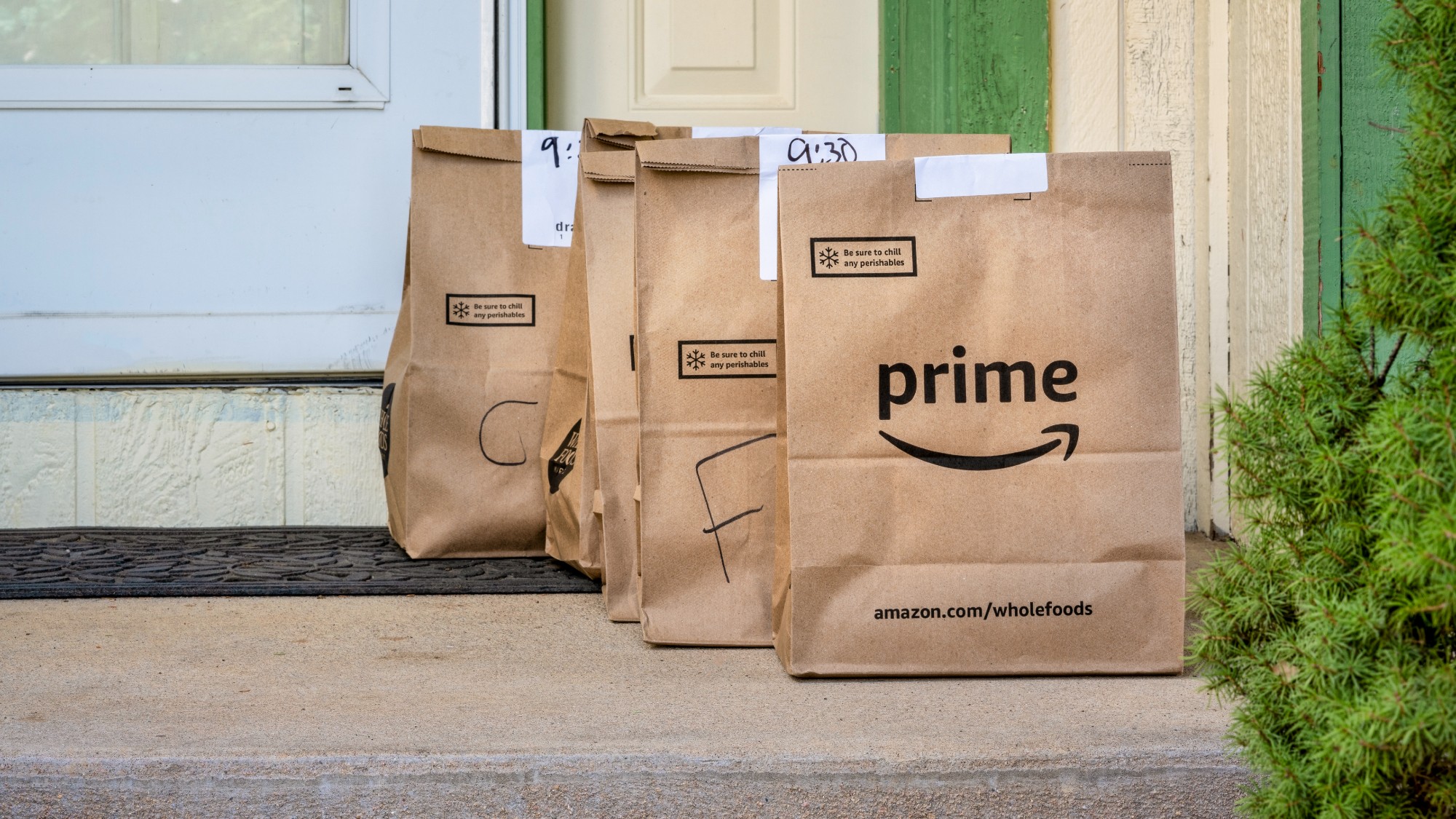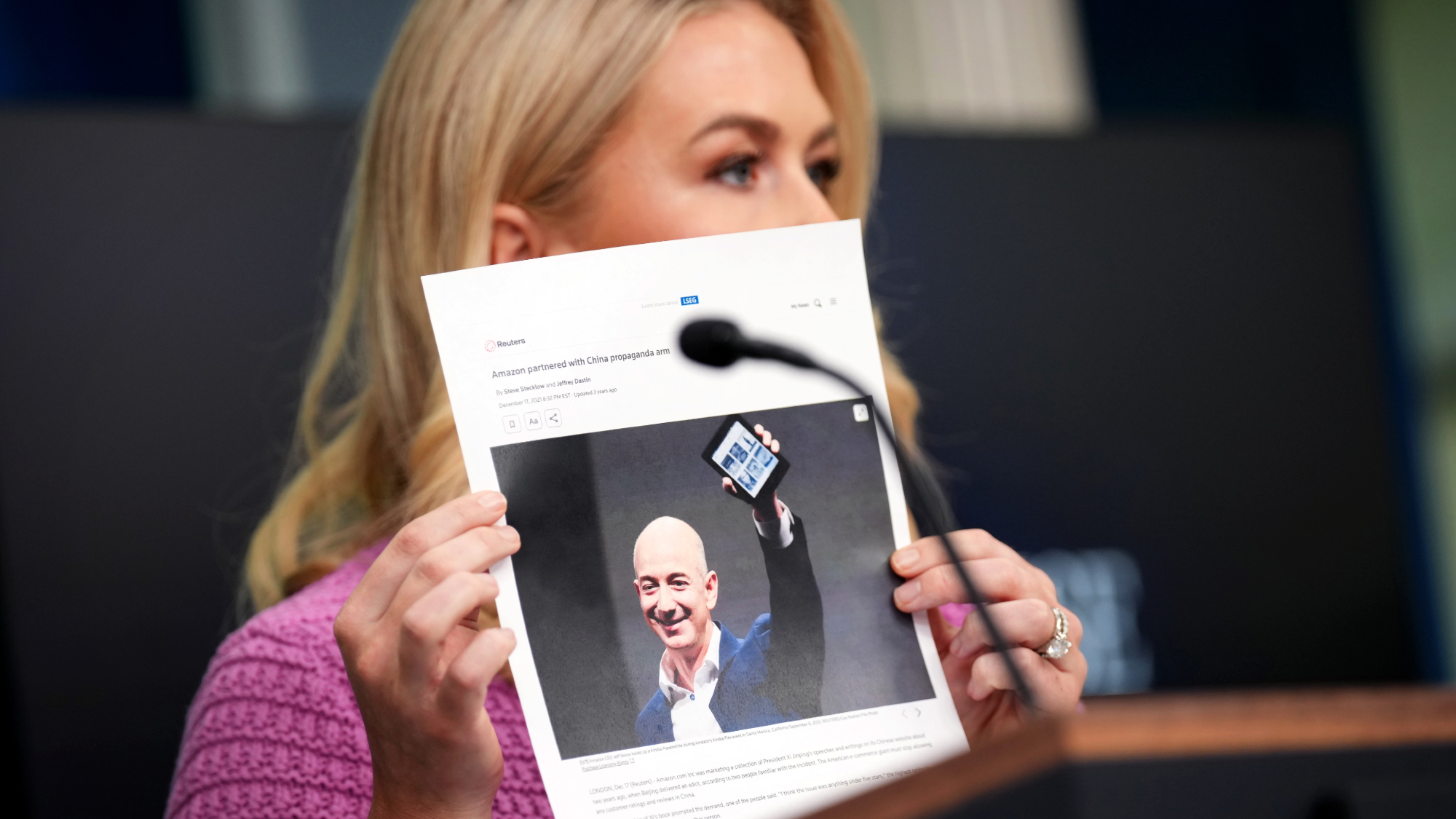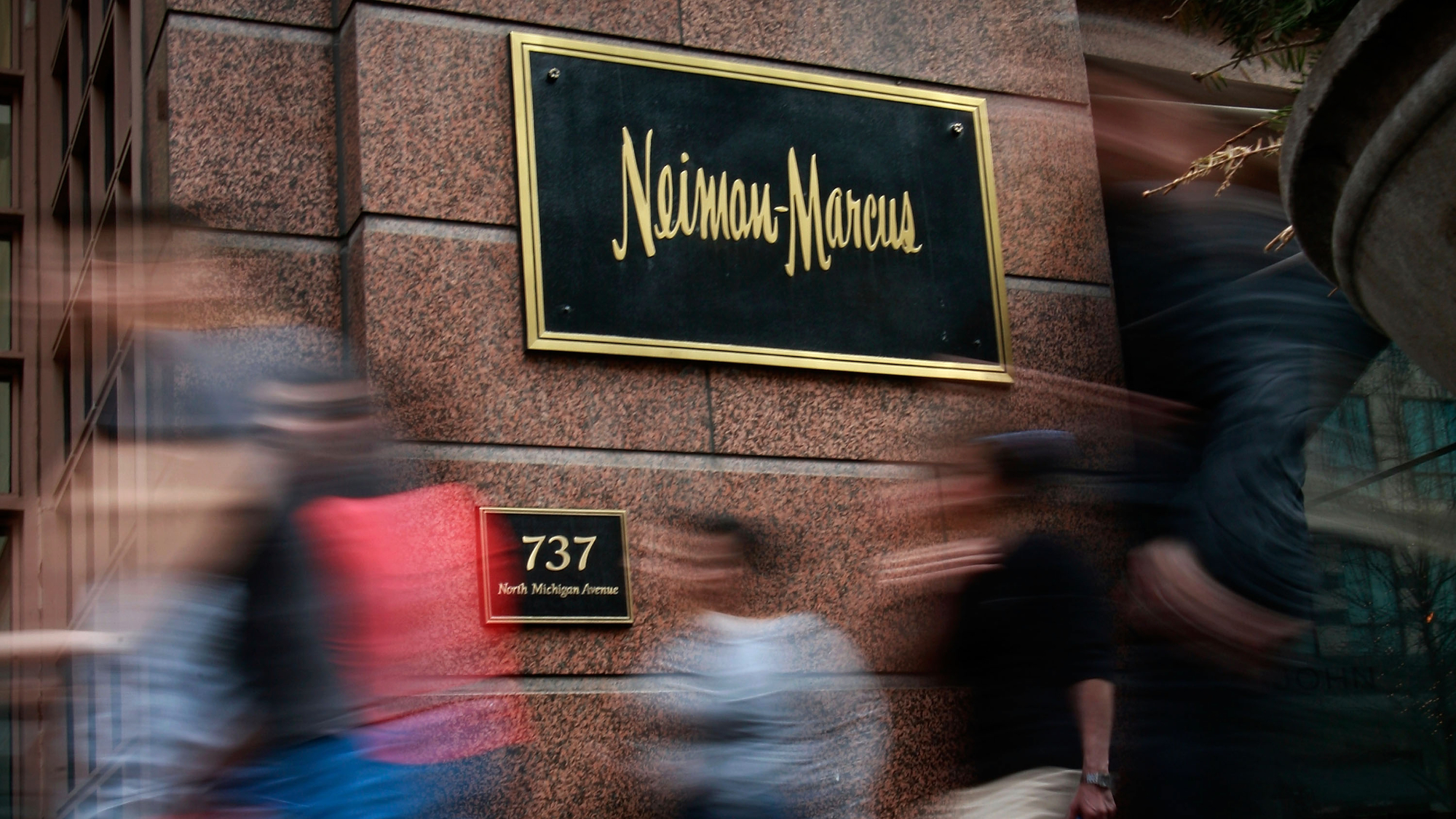Amazon accused of cutting benefits to fund pay rises
Trillion-dollar company eliminates bonuses and stock awards for hourly workers

A free daily email with the biggest news stories of the day – and the best features from TheWeek.com
You are now subscribed
Your newsletter sign-up was successful
Amazon’s much publicised pay rise for its lowest-paid workers is being funded in part by cuts to benefits, the GMB union has claimed.
This week the company, which was recently valued at over one trillion dollars, announced to much fanfare that minimum wage workers in the US will receive $15 an hour from 1 November, a pay rise of up to $7.75 depending on state.
In the UK, pay will rise from £8.20 an hour in London to £10.50, while outside London the rate rises from £8 an hour to £9.50.
The Week
Escape your echo chamber. Get the facts behind the news, plus analysis from multiple perspectives.

Sign up for The Week's Free Newsletters
From our morning news briefing to a weekly Good News Newsletter, get the best of The Week delivered directly to your inbox.
From our morning news briefing to a weekly Good News Newsletter, get the best of The Week delivered directly to your inbox.
The pay rise applies to 250,000 employees in the US, 17,000 in the UK and tens of thousands of seasonal workers.
But, buried in the small-print of the announcement was the announcement that Amazon is to eliminate monthly bonuses and stock awards for warehouse workers and other hourly employees.
The company informed employees on Wednesday that it will cease to hand out stock award or monthly bonuses in order to help pay for the raises.
The UK-based GMB union says the removal of employee share and incentive schemes could cost some workers £1,500 in a single year, describing the move as “stealth tax on its own wage increase” and “a clear case of robbing Peter to pay Paul”.
A free daily email with the biggest news stories of the day – and the best features from TheWeek.com
Amazon, which refuses to recognise the GMB union, confirmed the incentives were being withdrawn but said in a blog post: “The significant increase in hourly cash wages more than compensates for the phase out of incentive pay and RSUs [restricted stock units].”
“In addition, because it's no longer incentive-based, the compensation will be more immediate and predictable” a spokesperson added.
CNN says Amazon has “come under fire from critics” who say that the company doesn't pay its workers enough, and “has also been attacked by campaigners for how much tax it pays”, says the BBC.
This summer also saw warehouse workers in Germany, Spain and Poland take industrial action during the internet retail giant's Prime promotion event to demand better working conditions.
Many have drawn a contrast between poor pay and dire working conditions with CEO Jeff Bezos' spectacular wealth: He is the richest person alive, worth an estimated $165 billion.
“The pay increase warded off criticism from politicians and activists, and put the company in a good position to recruit temporary workers for the important holiday shopping season,” says Bloomberg, but the timing has raised questions about the company's motivation.
The Independent says the announcement comes as the UK nears full employment, with the jobless rate at its lowest since the 1970s, “making workers harder to come by”.
-
 Quentin Deranque: a student’s death energizes the French far right
Quentin Deranque: a student’s death energizes the French far rightIN THE SPOTLIGHT Reactions to the violent killing of an ultra-conservative activist offer a glimpse at the culture wars roiling France ahead of next year’s elections.
-
 Secured vs. unsecured loans: how do they differ and which is better?
Secured vs. unsecured loans: how do they differ and which is better?the explainer They are distinguished by the level of risk and the inclusion of collateral
-
 ‘States that set ambitious climate targets are already feeling the tension’
‘States that set ambitious climate targets are already feeling the tension’Instant Opinion Opinion, comment and editorials of the day
-
 Is the job market frozen or faltering?
Is the job market frozen or faltering?Today's Big Question Layoffs raise alarms while young workers eye law school
-
 Is Amazon about to take over the grocery business?
Is Amazon about to take over the grocery business?Today's Big Question Expanded delivery will present a challenge to Walmart and Kroger
-
 Trump calls Amazon's Bezos over tariff display
Trump calls Amazon's Bezos over tariff displaySpeed Read The president was not happy with reports that Amazon would list the added cost from tariffs alongside product prices
-
 What's Jeff Bezos' net worth?
What's Jeff Bezos' net worth?In Depth The Amazon tycoon and third richest person in the world made his fortune pioneering online retail
-
 Amazon's 'James Bond' deal could mean a new future for 007
Amazon's 'James Bond' deal could mean a new future for 007In the Spotlight The franchise was previously owned by the Broccoli family
-
 Britain's new retail returns nightmare
Britain's new retail returns nightmareIn the Spotlight Gen Z influencers and a 'poopy diaper' have shown up fault-lines in the system
-
 Saks buys Neiman Marcus in $2.65B deal
Saks buys Neiman Marcus in $2.65B dealSpeed Read Following the merger of the two legacy retailers, the new entity will be called Saks Global
-
 Retail media is seeing a surge this year
Retail media is seeing a surge this yearThe Explainer Amazon now makes more money from advertising than Coca-Cola's global revenue